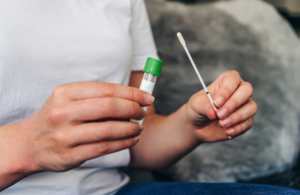Dstl staff recognised in the Queen’s Birthday Honours List
Press release
A Dstl senior scientist and a Sopra Steria solutions architect have been recognised in this year’s Queen’s Birthday Honours List. Dr Christopher Timperley and Lawrence Wright received awards for their respective areas of scientific contribution to global and UK safety.

Dstl’s Dr Christopher Timperley and Lawrence Wright
Dr Timperley is made an Officer of the Most Excellent Order of the British Empire (OBE) for his service to UK Defence and Security. His work has been vital to the global non-proliferation policy and decision making in the campaign against chemical weapons. In particular his selfless dedication during his four year post as the first ever UK Chair of the Organisation for the Prohibition of Chemical Weapons (OPCW) Scientific Advisory Board through a period during the use of nerve agents in both Syria and Salisbury.
Christopher said:
I’m indebted to those that nominated me for this honour. It recognises the central role of chemistry in helping to secure a world free of chemical weapons, and the collective endeavours of talented colleagues, nationally and internationally. I also thank my wife and family for their amazing support over many years.
Lawrence Wright, who works at Dstl on behalf of Sopra Steria, has been appointed a Member of the Most Excellent Order of the British Empire (MBE) for his service to UK Science and Technology. He developed Dstl’s High Performance Computing (HPC) environment whilst also delivering improvements to Dstl’s information technology infrastructure.
Lawrence said:
I felt incredibly surprised and humbled when I received notification that I was being awarded this honour. As a member of service provider staff I would never have expected to be recognised in such a way. I hope it can be seen to represent the commitment and effort that all of my Sopra Steria colleagues – and indeed all staff in supporting roles at Dstl – put into enabling the organisation’s vital work for the nation.
His high professional standards enabled Dstl to support the London School of Hygiene and Tropical Medicine (LSHTM) by providing access to a sophisticated HPC environment that provided both the Scientific Pandemic Influenza Group on Modelling (SPI-M) and the Scientific Advisory Group for Emergencies (SAGE), with essential COVID-19 modelling and analysis data.
Dstl’s Interim Chief Executive Doug Umbers said:
I am delighted and extremely proud, as both Christopher and Lawrence should be, to see that their professionalism and passion has made, and continues to make an immense impact on our nation’s science and technology and safety.
Published 11 June 2021
